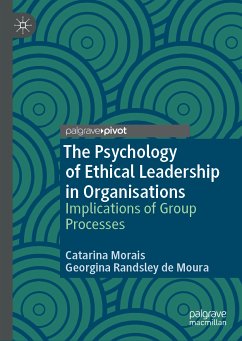Understanding the effects of and psychology behind ethical and unethical leadership decisions can have a lasting and far reaching effect on any working environment. This book utilizes social identity theory and applied research to discuss the implications and applications of ethical and unethical leadership to work groups and organisations. The authors argue that improving ethicality results in healthier and more productive relationships between leaders and employees, and between employees and the organisation, which can impact positively on the success of the organisation as a whole.
The book explores the benefits of ethical leadership and how to deal with unethical leaders, as well as how and why teams react to different types of leadership. The concluding chapter suggests several strategies for interventions that organisations can adopt to improve their ethical leadership frameworks. The book is essential reading for academics and professionals involvedin workplace psychology and ethics as well as anyone interested in learning about the effects of ethics on leadership.
Catarina Morais is an associate lecturer at University of Kent, UK. Her research interests focus on group members' perceptions of ethical and unethical leaders and how those perceptions shape their reactions.
Georgina Randsley de Moura is Professor in Social and Organisational Psychology and Head of School at the School of Psychology, University of Kent, UK. Her recent research has focused on how leaders manage a delicate line in representing their group whilst also pushing the boundaries; or leaders being different or unexpected in some way.
Dieser Download kann aus rechtlichen Gründen nur mit Rechnungsadresse in A, B, BG, CY, CZ, D, DK, EW, E, FIN, F, GR, HR, H, IRL, I, LT, L, LR, M, NL, PL, P, R, S, SLO, SK ausgeliefert werden.









